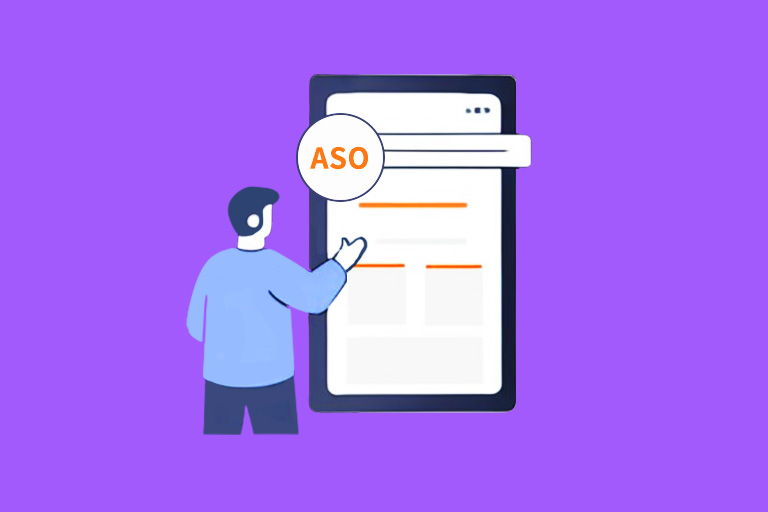In the fiercely competitive world of mobile app marketing, the art of App Store Optimization (ASO) is akin to navigating a minefield. Each step must be calculated, as even small errors can have a significant impact on your app's ranking, visibility, and ultimately, its download numbers.
Understanding the common pitfalls in ASO keyword research and optimization is essential for marketers looking to steer clear of these obstacles and chart a course to success.
ASO is not just about finding the right keywords; it's about using them effectively. A misaligned keyword strategy can derail your entire ASO campaign, wasting time and resources. By recognizing and avoiding common mistakes, you can optimize your app's presence in the app store, connect with your target audience, and boost your app's performance.
Example: An indie developer creates a meditation app and targets the keyword "meditation." However, this keyword is highly competitive, dominated by well-established apps. As a result, the app struggles to appear in the top search results. A better strategy would be to target more specific keywords like "meditation for sleep," where the competition is less intense, and the app has a better chance of ranking higher.
Use FoxData's Keyword Research tool to find the best keywords for your app.
Long-tail keywords are the unsung heroes of ASO, capturing users with specific intent and higher conversion potential. Unfortunately, they are frequently underutilized. Expanding your app listing to include a rich array of long-tail keywords can capture niche audiences and improve overall search visibility.
A common oversight in ASO is not including enough keywords within the app's metadata. Keywords should be thoughtfully integrated into the app name, subtitle, and descriptions, ensuring they align with relevant search terms to increase the app's discoverability and encourage click-throughs and conversions. See how others are doing it using App Marketing Analytics tool.
While it's important to include keywords, overstuffing your app listing can be counterproductive. Keywords should fit seamlessly into descriptions and titles, maintaining readability and context. Overuse can make your app appear unprofessional and can even lead to penalties from the app stores.
For example, A fitness app lists its features in the description, but instead of a natural flow, it reads: "Best workout app, workout planner, workout tracker, workout routines, workout challenges." This overuse not only disrupts readability but also risks the app being penalized by app stores for keyword stuffing. A more organic integration of keywords would be "Discover the best workout routines and track your progress with our comprehensive workout planner."
A strategic approach to ASO keyword research and optimization is crucial for app marketing success. By avoiding the common mistakes of overusing high-volume keywords, neglecting long-tail keywords, skimping on keyword density, resorting to keyword stuffing, and overlooking localization, marketers can significantly enhance their app's visibility and user acquisition.
Remember, the key to ASO success lies in a balanced, well-researched keyword strategy that caters to your audience's specific search behaviors and preferences.
Understanding the common pitfalls in ASO keyword research and optimization is essential for marketers looking to steer clear of these obstacles and chart a course to success.
The Importance of Recognizing ASO Mistakes
ASO is not just about finding the right keywords; it's about using them effectively. A misaligned keyword strategy can derail your entire ASO campaign, wasting time and resources. By recognizing and avoiding common mistakes, you can optimize your app's presence in the app store, connect with your target audience, and boost your app's performance.
Common ASO Keyword Mistakes to Avoid
1. Overemphasis on High-Volume Keywords
Many app marketers aim for the stars by targeting high-volume keywords, but this often results in a David versus Goliath scenario where small to mid-sized apps struggle to compete with established brands. Instead, focus on securing top positions for lower-traffic keywords, which can provide better visibility and a higher likelihood of ranking in the top search results.Example: An indie developer creates a meditation app and targets the keyword "meditation." However, this keyword is highly competitive, dominated by well-established apps. As a result, the app struggles to appear in the top search results. A better strategy would be to target more specific keywords like "meditation for sleep," where the competition is less intense, and the app has a better chance of ranking higher.
Use FoxData's Keyword Research tool to find the best keywords for your app.
2. Scarcity of Long-Tail Keywords
Long-tail keywords are the unsung heroes of ASO, capturing users with specific intent and higher conversion potential. Unfortunately, they are frequently underutilized. Expanding your app listing to include a rich array of long-tail keywords can capture niche audiences and improve overall search visibility.
3. Insufficient Keyword Density
A common oversight in ASO is not including enough keywords within the app's metadata. Keywords should be thoughtfully integrated into the app name, subtitle, and descriptions, ensuring they align with relevant search terms to increase the app's discoverability and encourage click-throughs and conversions. See how others are doing it using App Marketing Analytics tool.
4. Falling into the Keyword Stuffing Trap
While it's important to include keywords, overstuffing your app listing can be counterproductive. Keywords should fit seamlessly into descriptions and titles, maintaining readability and context. Overuse can make your app appear unprofessional and can even lead to penalties from the app stores.For example, A fitness app lists its features in the description, but instead of a natural flow, it reads: "Best workout app, workout planner, workout tracker, workout routines, workout challenges." This overuse not only disrupts readability but also risks the app being penalized by app stores for keyword stuffing. A more organic integration of keywords would be "Discover the best workout routines and track your progress with our comprehensive workout planner."
5. Neglecting Localization
Global app markets require localized keyword research. Cultural nuances and regional language differences mean that direct translations often miss the mark. Tailoring your keyword research for each target market ensures that your app resonates with users across different regions. (Our FoxData's Global App Market Research Tool can help you in this process)
Conclusion
A strategic approach to ASO keyword research and optimization is crucial for app marketing success. By avoiding the common mistakes of overusing high-volume keywords, neglecting long-tail keywords, skimping on keyword density, resorting to keyword stuffing, and overlooking localization, marketers can significantly enhance their app's visibility and user acquisition. Remember, the key to ASO success lies in a balanced, well-researched keyword strategy that caters to your audience's specific search behaviors and preferences.







